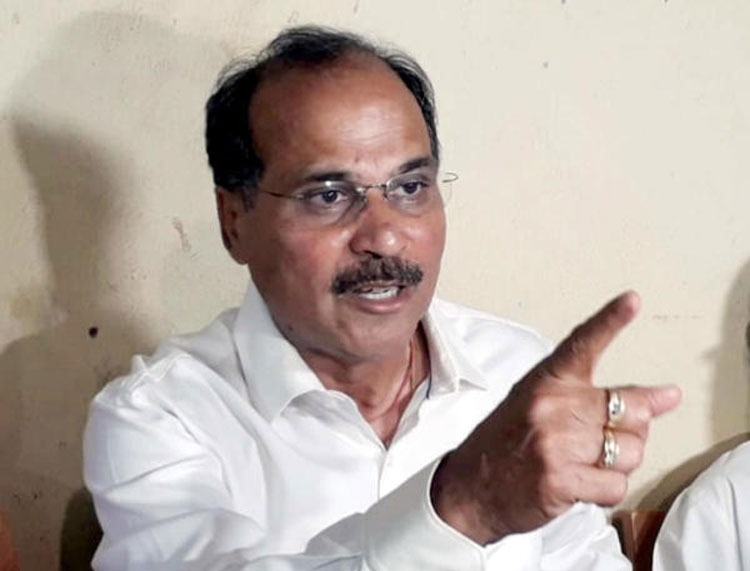The Congress on Saturday described as “numerical authoritarianism” the denial of the chairpersonship of any among three key parliamentary standing committees — on finance, external affairs and defence — that it had headed in recent Houses.
The three committees are crucial to the parliamentary oversight of major government decisions.
Congress MPs headed the committees on finance and external affairs in the previous House despite the party having just 40-odd Lok Sabha members. Congress members headed the committee on defence between 2004 and 2014.
The chairpersonship of the committee on external affairs has always been given to the Opposition, ensuring bipartisan consensus on foreign policy overriding the political differences on domestic issues.
For the past two decades, the committee on finance has been headed by an Opposition MP while the committee on defence has traditionally been chaired by a treasury bench member.
“This (denial of chairpersonship) is a conspiracy to weaken parliamentary democracy. We strongly oppose this decision,” the Congress leader in the Lok Sabha, Adhir Chowdhury, told The Telegraph.
“This is an attempt to escape genuine scrutiny. They have broken the neck of the monitoring system. I have written to parliamentary affairs minister Pralhad Joshi to review the decision and offer chairmanship of either (at least one) of the three — finance, external affairs or defence — to the Congress.”
Adhir added: “Joshi told me the BJP’s numbers had increased and hence it will head more Lok Sabha-related standing committees. Our numbers have also increased.”
He went on: “It’s not about numbers; it’s about the democratic spirit. The oversight committee cannot act as a government agency. The tradition of appointing an Opposition leader as the chairman is aimed at ensuring objectivity. That’s why the most important public accounts committee is customarily headed by an Opposition leader. By flaunting numbers, the BJP is practising numerical authoritarianism.”
Shashi Tharoor, who headed the committee on external affairs in the previous House, tweeted: “It’s official: The government has decided to end the tradition of the leading Opposition party chairing the external affairs committee. Apparently a BJP MP will now hold the BJP government accountable instead. One more blow to our soft power, image & international reputation as a mature democracy.”
Adhir was blunt, saying: “The government snatched important committees from us because last time we discussed Doklam and Rafale.”
While only the three subjects of agriculture, environment and forests were covered when the system of parliamentary committees was introduced in 1989, the number was increased to 17 in 1993 and 24 in 2004.
Parliamentary work is complex and requires serious examination. It was felt after decades of experience that doing so entirely inside the Houses, under public glare and partisan brinkmanship, was impossible. So, the committee system was adopted.
These committees can consider demands for grants, study bills referred to them, examine policies, call for documents and then prepare reports for Parliament to consider. These committees do not oversee the day-to-day administration of the ministries; they are a mechanism for parliamentary surveillance and guidance to the executive.
The Congress has now been given the chairpersonship of three committees: home; information technology; and science, environment and forests. While Rajya Sabha member Anand Sharma will head the committee on home, Tharoor will chair the IT committee and Jairam Ramesh the science, environment and forests committee.
Other Opposition parties have been given chairpersonships of the committees on health; food and consumer affairs; labour; and chemicals and fertilisers.
While BJP Lok Sabha member Jayant Sinha will chair the committee on finance, party colleagues Jual Oram and P.P. Chaudhary will head the panels on defence and external affairs, respectively. Rahul Gandhi will be a member on the committee on defence.
Among BJP members heading standing committees are Bhupender Yadav (personnel, public grievances, law and justice), Rakesh Singh (coal and steel), Ramesh Bidhuri (petroleum and natural gas), Rama Devi (social justice and empowerment), Satyanarayan Jatiya (human resource development), Jagadambika Pal (urban development), Sanjay Jaiswal (water resources), Radha Mohan Singh (railways) and P.C. Gaddigoudar (agriculture).
Telangana Rashtra Samithi member K. Keshava Rao will head the panel on industry.
Trinamul Lok Sabha member Sudip Bandyopadhyay will head the committee on food, consumer affairs and PDS while DMK member M. Kanimozhi will chair the committee on chemicals and fertilisers.
Each committee used initially to have 45 members --- 30 from the Lok Sabha and 15 from the Rajya Sabha --- but were in 2004 converted into 31-member bodies with 21 members from the Lok Sabha and 10 from the Rajya Sabha.










